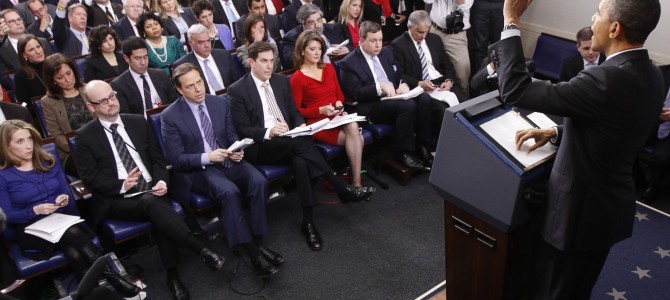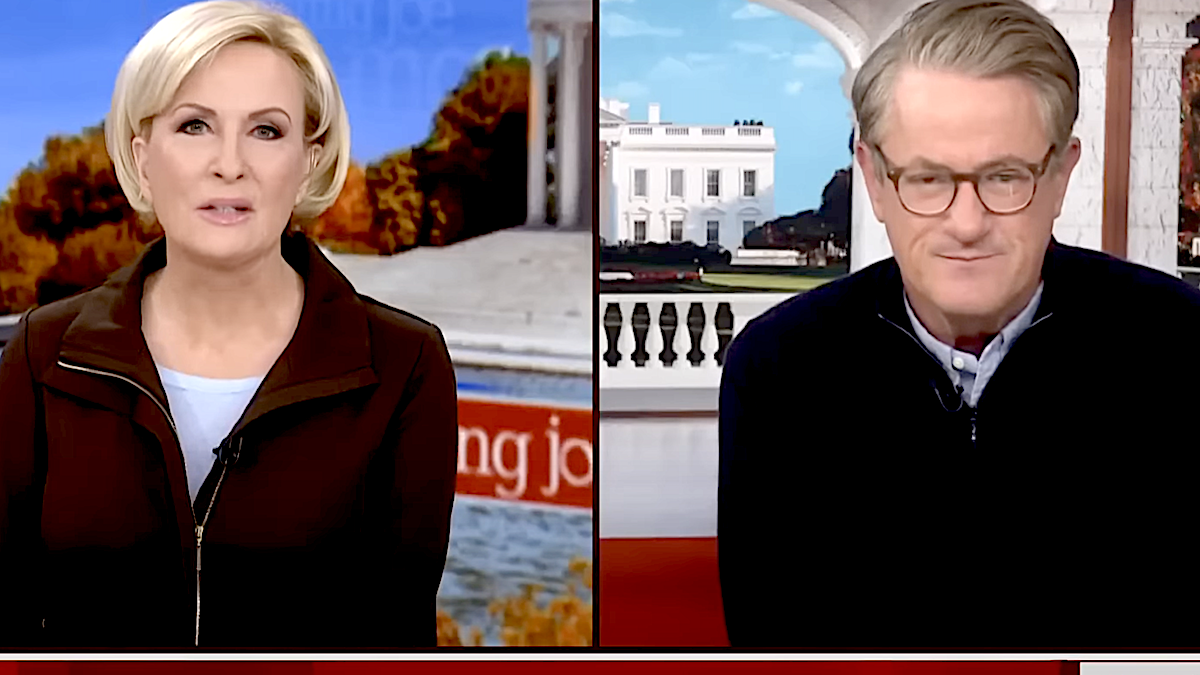
As Obamacare has failed and flailed over the last several months, myriad journalists have openly asked a seemingly-innocent question: how could the American media have failed to see this stuff coming? Such soul-searching has been rightly met with laughter, derision and skepticism by conservative/libertarian media and wonks who have reported on and warned of these issues –higher costs, dropped plans, limited provider networks and IT failures – since 2009. Most of this well-deserved criticism has implicated liberal media bias, and there’s certainly some truth to that. However, another, lesser-explored reason likely deserves some of the blame: journalists’ ignorance of basic right-leaning political science and economic principles. And this problem, I think, has equally far-reaching implications for both media and public policy.
An apparent example of such ignorance comes from a recent piece by Evan Soltas at Bloomberg, who innocently noticed that the health care companies who lobbied for and supported Obamacare now appear to be – gasp! – reaping windfall profits therefrom:
Health care is a business, and businesses are supposed to make money. Still, it’s a bit concerning that health-care investors are so upbeat just as President Barack Obama’s health-reform law goes into effect. It makes you wonder where the new profits are expected to come from….
Economists call profits in excess of what would be earned in a competitive market “rents.” Often it’s hard to tell the difference — but the expected increase in health-care profits has a whiff of rent about it. After all, Obama passed his law with the support of the health-care industry. The insurers signed on. Pharma signed on. Doctors signed on. It would be shocking if this law reduced their rents….
The health-care reform gives health-care suppliers one of the benefits enjoyed by utilities: safe profits. But the quid pro quo — that those profits should be moderate — seems to be missing. That’s the assessment of investors, anyway. For now, at least, they aren’t looking at Aetna the way they look at Con Ed.
In The Transom, Ben Domenech quickly dispatches Soltas’ musings by asking “What do you expect to happen when you make it illegal not to buy a corporation’s product which drives these profits? That’s who this presidency has been for all along.” That’s valid, of course, but Soltas’ piece seems to grasp this part of the deal:
The law will give the insurance industry millions of new customers and subsidizes its products. It brings millions of others into the market for health-care services through its Medicaid expansion. If health-care investors are throwing a party, it might be because the rest of us are paying for it.
What Soltas is puzzled about, however, is why the law appears to be all upside – essentially a expanded consumer base without any caps on rates or profits (such as those endured by utilities) – for insurers, hospitals and certain other health care industries. This, in my opinion, is where Soltas reveals a serious blind spot for basic political economy: rent-seekers don’t spend tens of millions of dollars lobbying for downside, and, as Public Choice 101 teaches us, self-interested politicians looking to get re-elected are more than happy to ensure that no such downside exists. And it’s not like such collusion was a secret: hundreds of stories before, during and after Obamacare’s passage indicated just how intensely these companies lobbied and worked with the Obama administration and Congress on Obamacare: health insurers, drug makers and their CEOs, health IT companies, Hospitals – the list goes on and on. All told, these companies spent a total of $120 million lobbying Obamacare. Such intensity does not go unnoticed by the vast majority of lawmakers who are seeking to maximize their own benefits from the political process (i.e., reelection).
These concepts are simple and widely-accepted, and depressing, real-world examples of consumers getting totally screwed by corporatist regulations pervade American politics (see, for example, the latest developments regarding the US sugar program). So why on earth is Soltas surprised that Obamacare is a boon for the health care companies that spent a small fortune to ensure both its legislative form and eventual success?
There are only two answers, I think: he willfully refused to notice these interactions as they were happening (or subsequently reviewed); or he simply didn’t grasp the political and economic concepts necessary to properly interpret them – in this case, the well-accepted notion that politicians are typically not driven by benevolent, statesmanlike interests and instead respond to those who lobby most intensely for a certain policy (thus ensuring that Obamacare, in the aggregate, delivers concentrated benefits to certain special interest groups and imposes diffuse costs on American consumers). Neither answer is flattering, but at least the latter doesn’t involve malice. (Hooray, silver linings!)
I don’t mean to pick on Soltas (really!) – he’s certainly not alone here, as dozens of media folks appear only now to be waking up to the political and economic implications of Obamacare’s creation and implementation that many of us understood (and loudly warned about!) way back in 2009. Nevertheless, Soltas’ short article is indicative of the media’s failings in this regard, and it speaks to an issue beyond Obamacare: if American journalists really are ignorant of widely-accepted (and Nobel prize-winning!) political and economic principles, what else are they missing and how will that affect current and future policy debates on important policy issues?
If the current media discussions about the minimum wage or green subsidies or unemployment benefits are any indication, the answer here is as depressing as it is evident: a whole helluva lot. And as such, these journalists fail not only their audience, but also themselves.
UPDATE: Soltas reached out via Twitter in order to (a) inform me that he actually wasn’t surprised by the health care companies’ windfall profits from Obamacare and actually was blaming the intense Obamacare lobbying for this unfortunate outcome; and (b) he could’ve been clearer about that in his Bloomber piece. I’m glad to know we agree that none of this is surprising. I just wish other journalists felt the same way.
The full Twitter exchange in which Soltas clarified his views can be found here.
The views expressed herein are Scott Lincicome’s alone and do not necessarily represent the views of his employer, White & Case, LLP.









